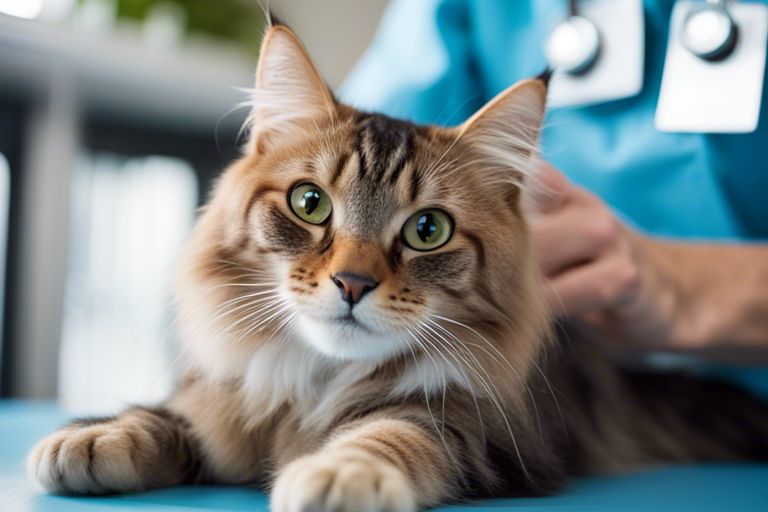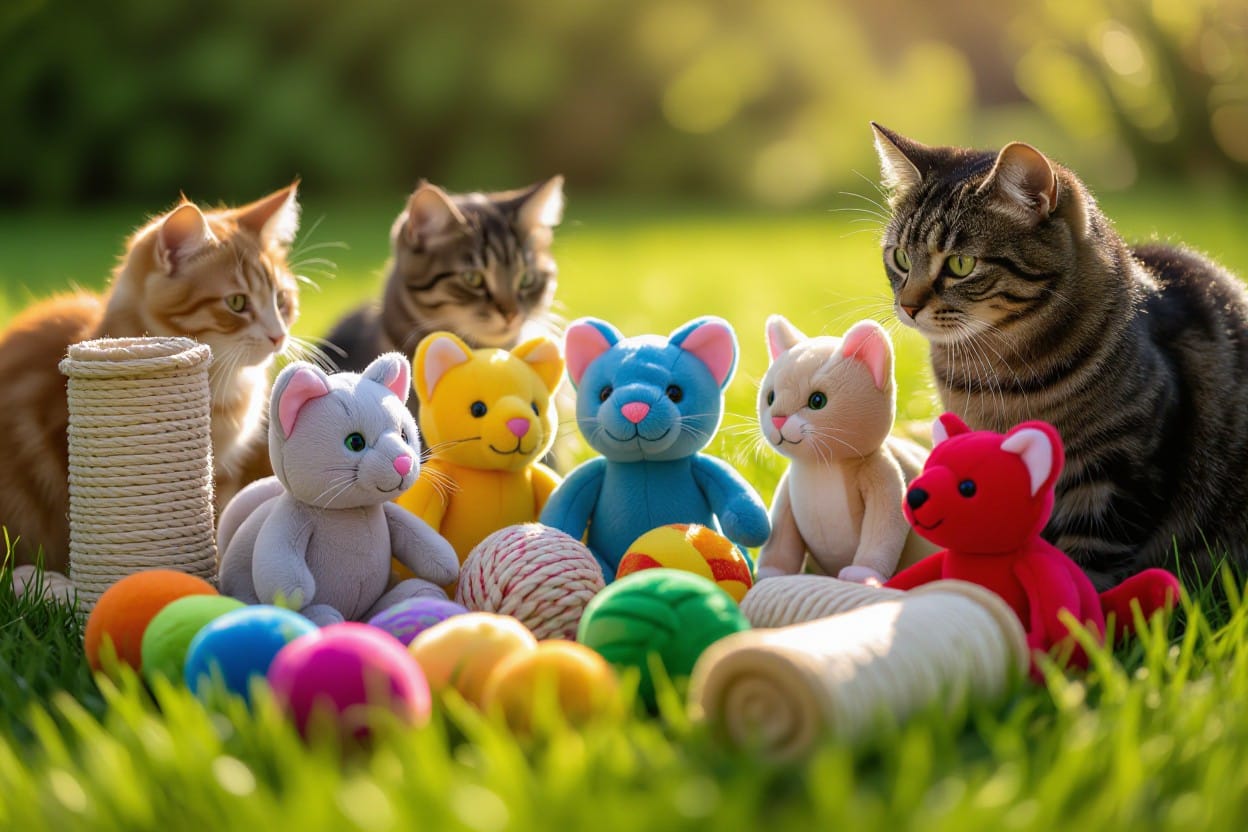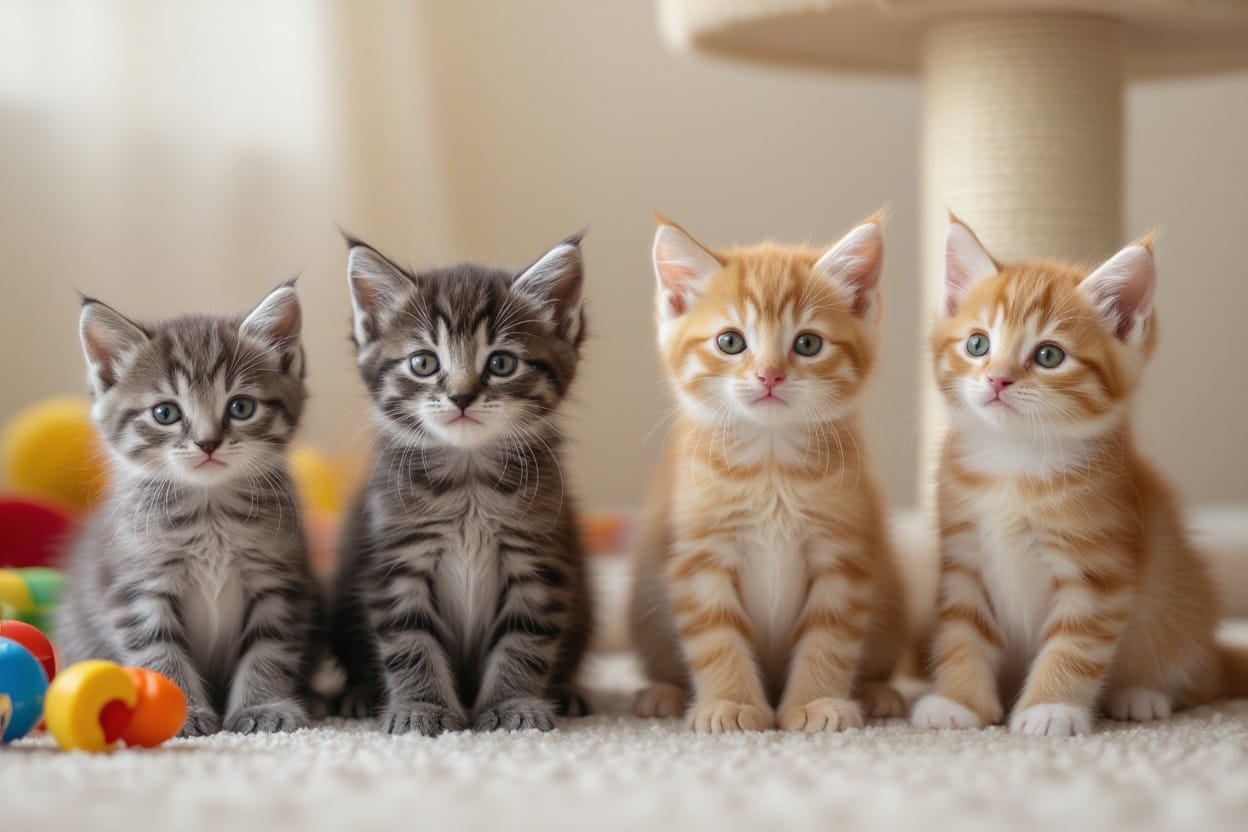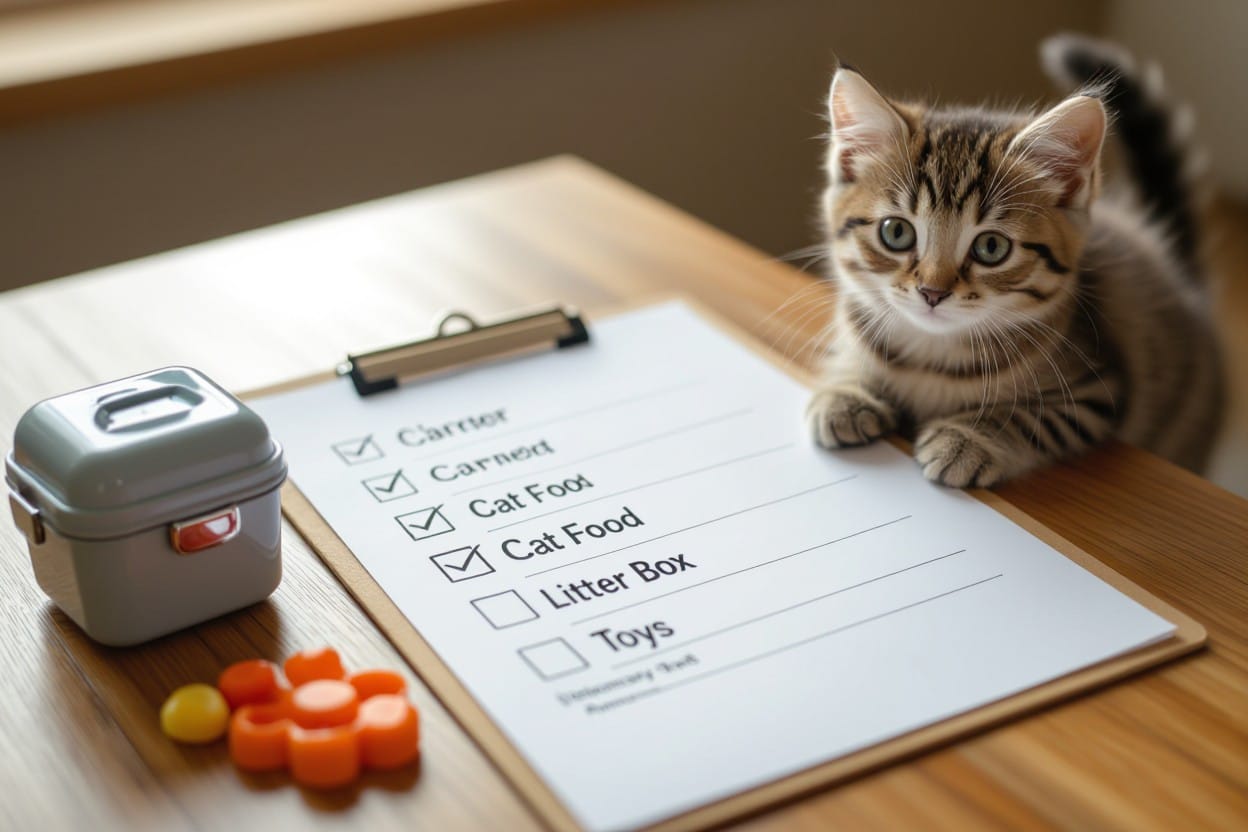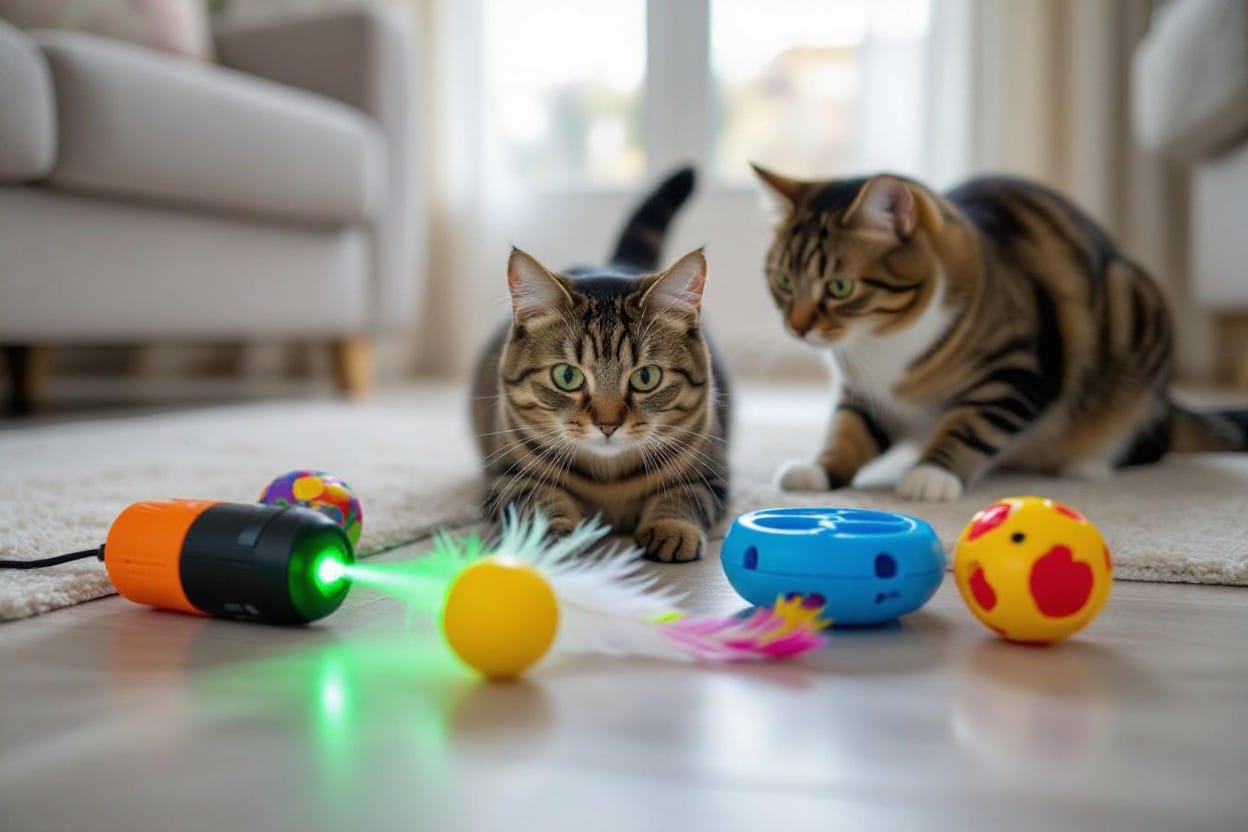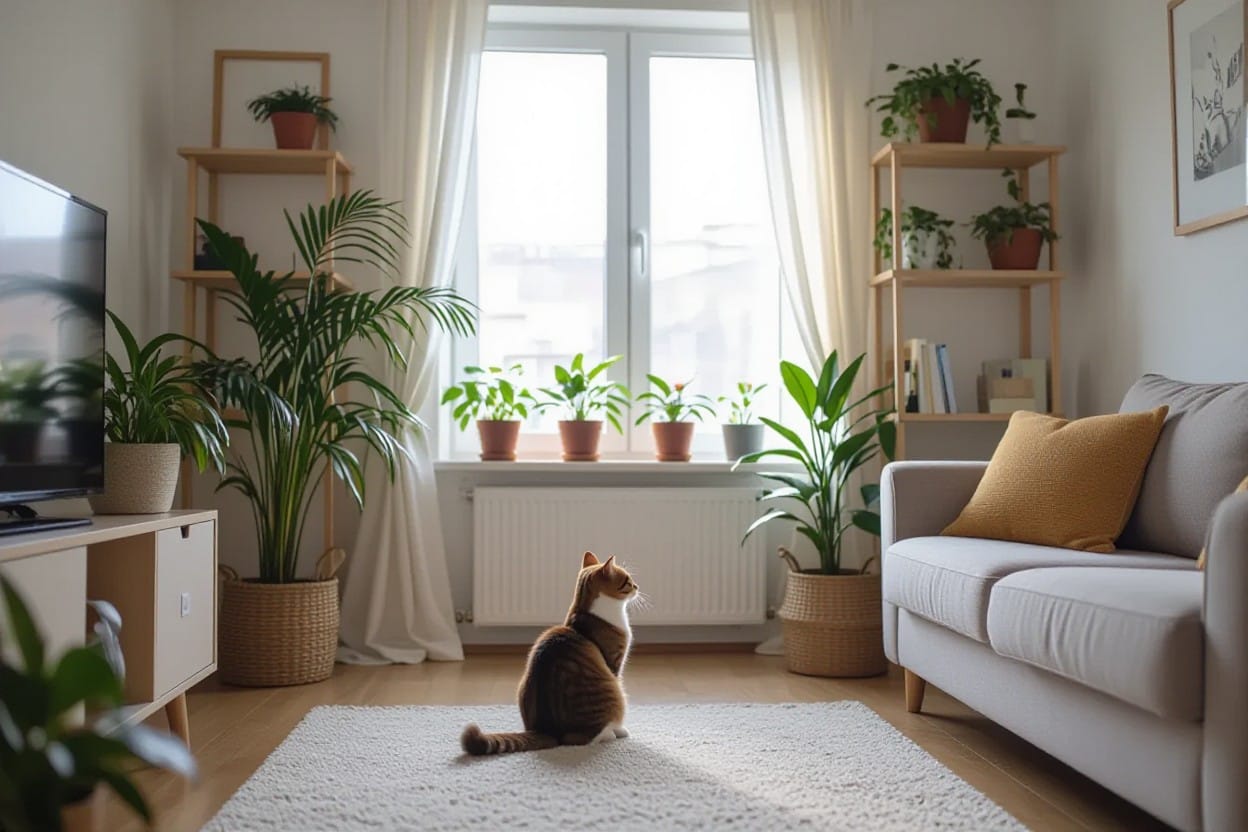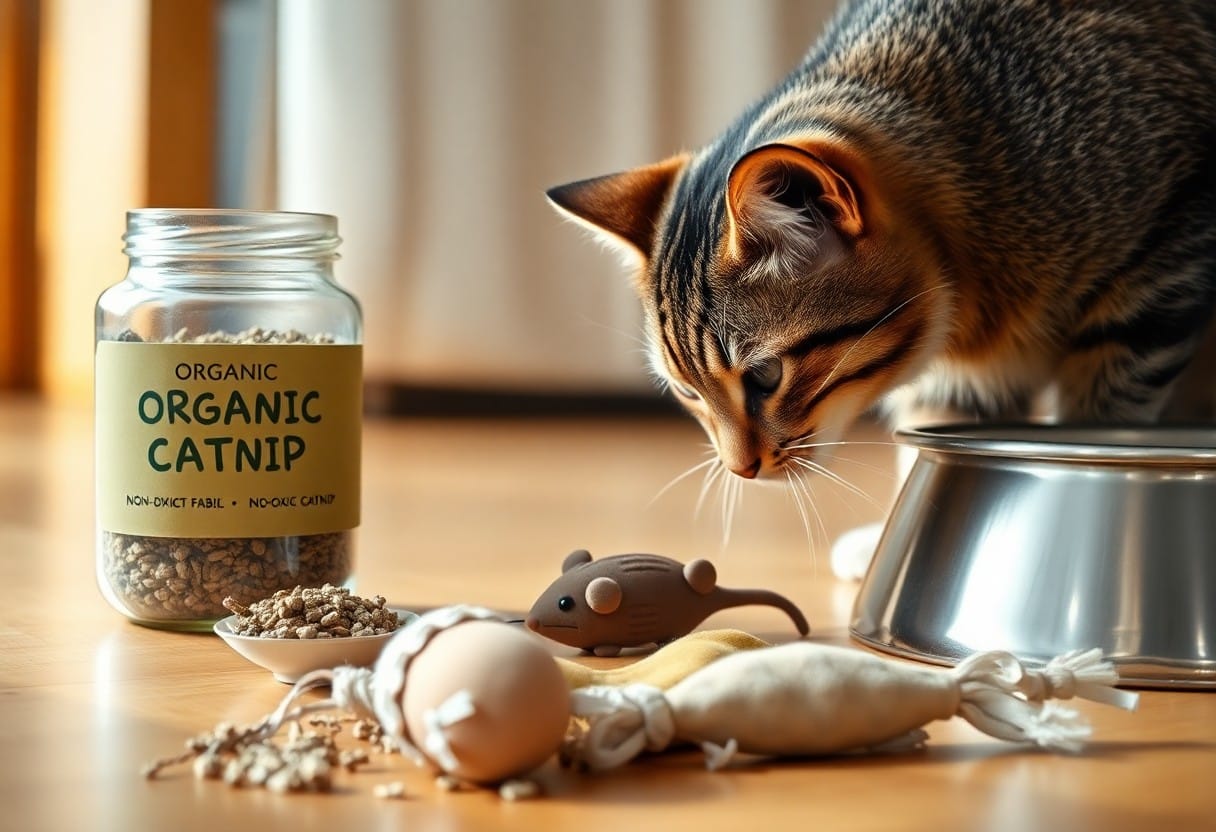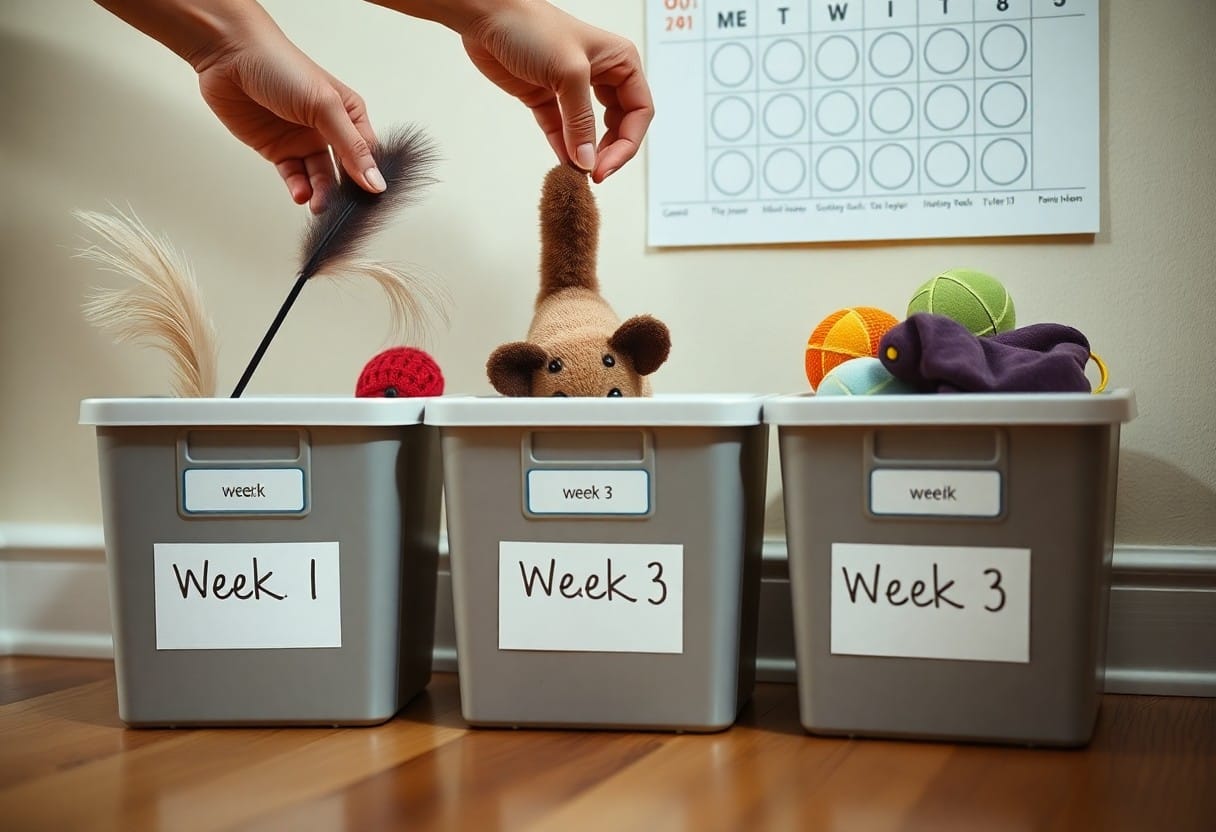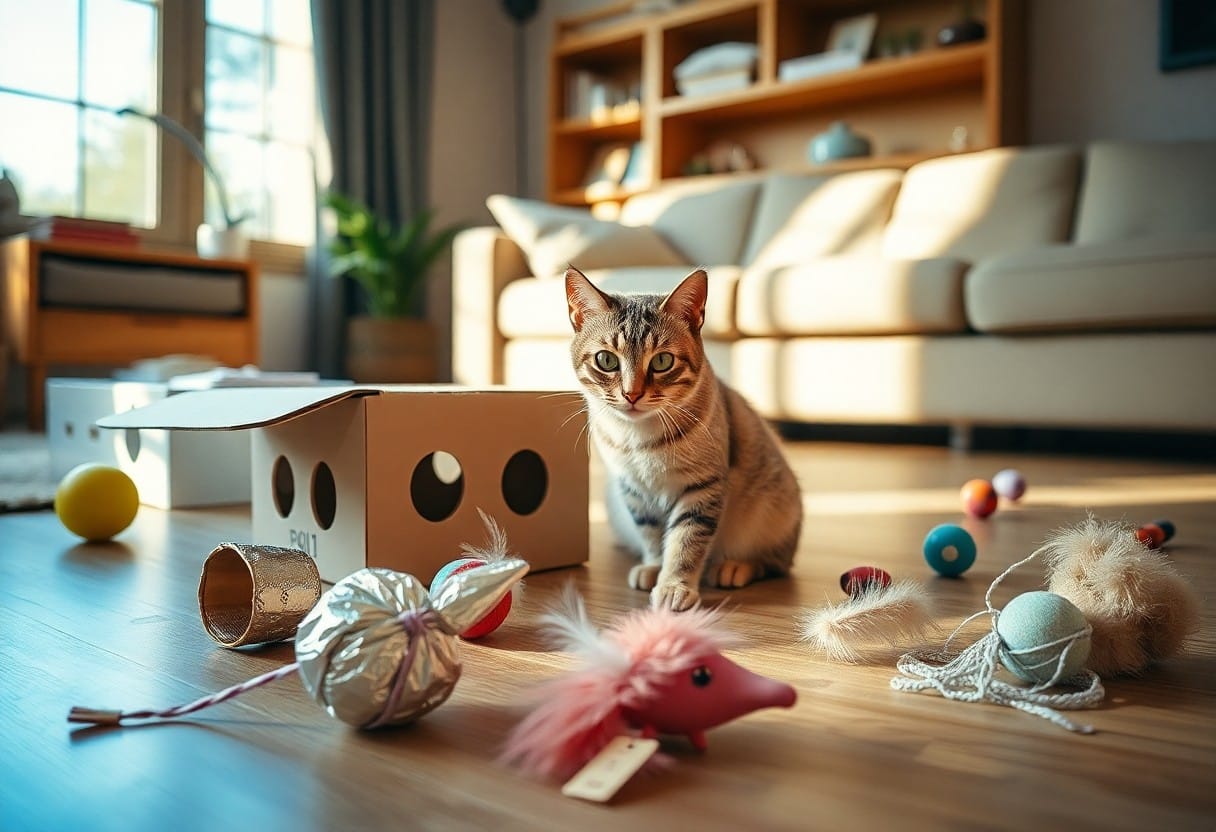Feline health is a crucial aspect of responsible pet ownership, and regular vet check-ups play a vital role in ensuring the well-being of our beloved furry friends. Just like humans, cats need routine medical exams to monitor their overall health, catch any potential issues early, and provide necessary preventive care. These check-ups are necessary for preventing illnesses, maintaining a high quality of life, and addressing any health concerns promptly.
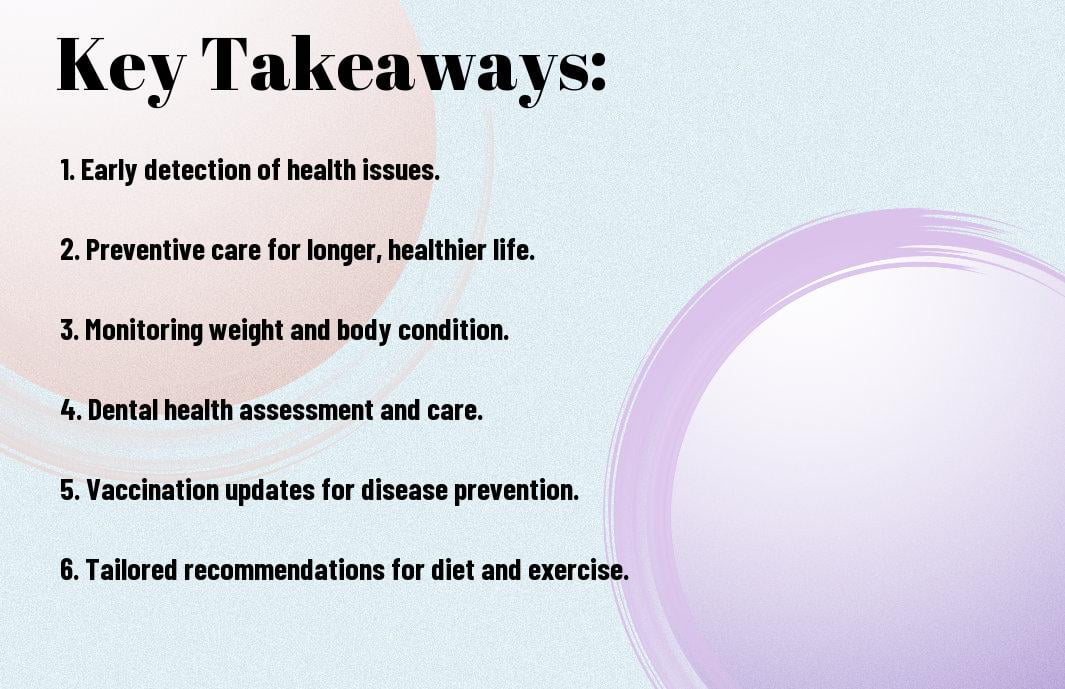
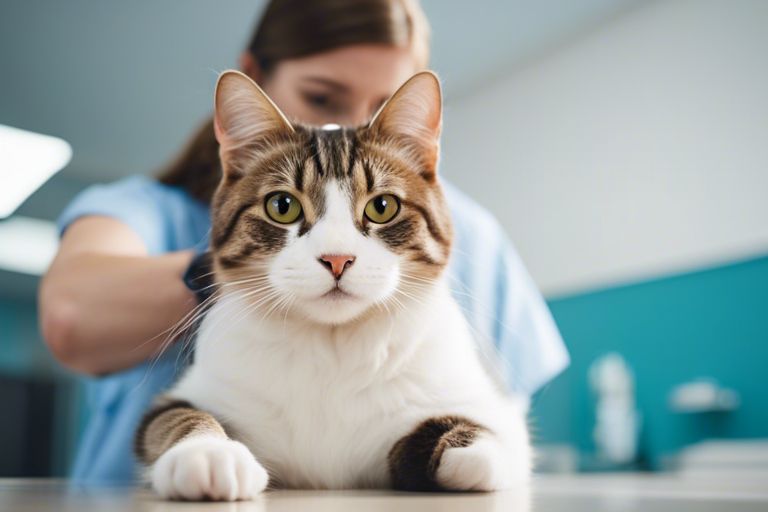
The Basics of Feline Health Care
Nutrition and Diet
To ensure the overall well-being of your feline friend, proper nutrition plays a crucial role. It is important to provide your cat with a balanced diet that meets their specific needs. Consulting your veterinarian for guidance on the best food options, portion sizes, and feeding schedule is highly recommended. Note, cats have unique dietary requirements that differ from other animals, so what works for a dog or a human may not be suitable for a cat.
Exercise and Activity
Any responsible cat owner should prioritize incorporating regular exercise and physical activity into their pet’s routine. Keeping your cat active helps maintain a healthy weight, promotes cardiovascular health, and prevents behavioral issues related to boredom or lack of stimulation. Interactive play sessions, climbing structures, and puzzle toys are great ways to keep your feline friend engaged and stimulated. If you have an indoor cat, providing opportunities for exercise is even more critical to prevent obesity and ensure a happy, healthy cat.
Regular playtime with toys can also strengthen the bond between you and your cat, providing both physical and mental stimulation. In addition to scheduled play sessions, consider creating a stimulating environment for your cat with scratching posts, perches near windows, and hiding spots to encourage natural behaviors and keep them active throughout the day.
The Annual Vet Check-up Explained
What to Expect During a Visit
Explained: Regular vet check-ups are crucial for your feline friend’s overall health and well-being. During an annual vet check-up, your veterinarian will conduct a thorough examination of your cat to assess their physical condition, check for any health issues, and provide necessary vaccinations. It’s also a great opportunity for you to discuss any concerns or changes in your cat’s behavior with the vet.
The Physical Examination
Annual physical examinations are vital in detecting any underlying health issues before they escalate. Your vet will typically start by checking your cat’s weight, temperature, heart rate, and respiratory rate. They will also examine your cat’s eyes, ears, and mouth for any signs of infection or dental problems. Additionally, the vet will palpate your cat’s abdomen to check for any abnormalities in the internal organs. This comprehensive physical exam helps ensure that your cat is healthy and happy.
Preventative Care
Now, regular vet check-ups are crucial in ensuring your cat’s overall health and well-being. Preventative care plays a significant role in keeping your feline friend happy and healthy for years to come. By staying on top of preventative measures, you can help detect and address any potential health issues before they escalate.
Vaccinations and Parasite Control
One of the vital aspects of preventative care for your cat is ensuring they are up to date on their vaccinations and parasite control. Vaccinations protect your cat from various diseases, some of which can be fatal. Similarly, regular deworming and flea control are vital in maintaining your cat’s health. Your veterinarian can recommend a vaccination and parasite control schedule tailored to your cat’s specific needs.
Dental Hygiene and Care
For optimal preventative care, dental hygiene should not be overlooked. Dental issues are common in cats and can lead to serious health problems if left untreated. Regular dental check-ups and cleanings can prevent dental disease and maintain your cat’s oral health. Brushing your cat’s teeth regularly at home can also help prevent dental issues. Your veterinarian can provide guidance on how to properly care for your cat’s teeth at home.
This chapter highlights the importance of preventative care in maintaining your cat’s health and well-being. By staying proactive with vaccinations, parasite control, and dental hygiene, you can help ensure a long and healthy life for your feline friend.
The Significance of Early Detection
Unlike humans, cats are masters at hiding their illnesses. This innate survival instinct can often lead to health issues going unnoticed until they become serious. Regular vet check-ups are crucial for early detection of any potential problems. Catching issues early can make a huge difference in the treatment and potentially save your feline friend’s life.
Common Feline Diseases
Significance of early detection cannot be stressed enough when it comes to common feline diseases such as feline leukemia, kidney disease, diabetes, and hyperthyroidism. These illnesses can progress rapidly without showing obvious symptoms until they reach advanced stages. Regular check-ups and screenings can help identify these diseases in their early stages when treatment is often more effective.
Diagnostic Tests and Their Importance
Early diagnosis of feline diseases heavily relies on diagnostic tests like blood work, urine analysis, and imaging. These tests help veterinarians get a comprehensive picture of your cat’s health and can detect issues that may not be apparent during a physical exam. Diagnostic tests are imperative for identifying underlying health problems, monitoring organ function, and guiding treatment plans for your feline companion.
Another vital aspect of diagnostic tests is their role in preventive care. By conducting routine blood work and screenings, veterinarians can detect subtle changes in your cat’s health over time, allowing for early intervention and management of potential issues before they escalate.
Behavioral Health and Wellbeing
Your feline friend’s behavioral health is an important indicator of their overall wellbeing. Cats are known for being independent and sometimes mysterious creatures, but changes in their behavior could signal underlying issues that need to be addressed.
Stress and Anxiety in Cats
Wellbeing: Cats can experience stress and anxiety from various factors such as changes in their environment, new additions to the family, or even medical conditions. Signs of stress in cats include hiding more than usual, excessive grooming, aggression, or changes in litter box habits. Regular vet check-ups can help identify and address these issues before they escalate.
Addressing Behavioral Issues
Behavioral: It is crucial to address any behavioral issues early on to ensure your cat’s mental and emotional wellbeing. Your vet can provide recommendations on environmental enrichment, behavior modification techniques, or even medication if necessary. Ignoring behavioral issues can lead to more significant problems and affect your cat’s quality of life.
Another important aspect of addressing behavioral issues is understanding that every cat is unique, and what works for one cat may not work for another. Your vet can help tailor a plan that suits your cat’s specific needs and helps them live a happy and healthy life.
Senior Cat Care
Despite being more independent creatures, our feline friends require special attention and care as they age. Just like humans, cats also experience physical and mental changes as they grow older. It is crucial to understand the special considerations for senior cat care to ensure your pet leads a healthy and comfortable life in their golden years.
Special Considerations for Aging Cats
Senior cats may experience a decline in their senses, mobility issues, dental problems, and changes in their dietary needs. It’s important to monitor your aging cat closely and make adjustments to their living environment to accommodate any changes they may be going through. Providing easier access to litter boxes, comfortable resting areas, and regular veterinary check-ups can help address these age-related issues effectively.
Managing Chronic Conditions
With advancing age, cats are more prone to developing chronic conditions such as arthritis, kidney disease, diabetes, and hyperthyroidism. These conditions require careful management and regular monitoring by a veterinarian. It’s crucial to work closely with your vet to develop a treatment plan that may include medication, dietary changes, and regular check-ups to ensure your senior cat’s well-being.
A proactive approach to managing chronic conditions in aging cats can significantly improve their quality of life and help them enjoy their later years comfortably. Regular communication with your vet and keeping an eye out for any changes in your cat’s behavior or health can aid in early detection and treatment of potential issues.
Many cat owners may find themselves in a panic when their feline friend starts exhibiting signs of illness. However, being able to recognize these signs early on can make a huge difference in the outcome of your cat’s health. Regular vet check-ups can help you stay informed about potential health issues your cat may face.
Recognizing Signs of Illness
On a day-to-day basis, it is necessary to monitor your cat’s behavior and physical condition closely. Changes in eating habits, litter box usage, grooming, or energy levels can all be indicators that something is amiss. Additionally, symptoms such as vomiting, diarrhea, lethargy, coughing, sneezing, or unusual lumps should not be ignored. If you notice any of these signs, it is crucial to consult your veterinarian promptly.
When to Visit the Vet Immediately
Immediately rushing your cat to the vet is necessary in certain situations. Severe symptoms like difficulty breathing, sudden paralysis, seizures, or profuse bleeding require immediate veterinary care. It is always better to err on the side of caution when it comes to your cat’s health.
For instance, if your cat has ingested a toxic substance or sustained a serious injury, it is vital to seek veterinary attention without delay. Delaying treatment in emergency situations could potentially worsen your cat’s condition and jeopardize their well-being. Do not forget, when in doubt, it is best to seek professional help promptly.
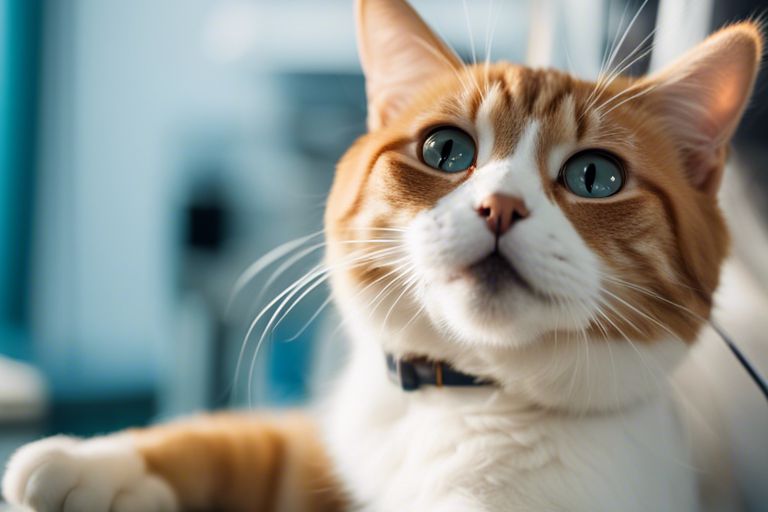
Building a Relationship with Your Vet
Importance of Consistent Care
For your feline friend, consistent care from a trusted veterinarian is vital for maintaining good health. Regular check-ups allow the vet to detect any potential issues early on, increasing the chances of successful treatment. Additionally, routine vaccinations and preventative measures recommended by your vet can help keep your cat protected from common illnesses.
Communication and Trust
Careful communication with your vet is crucial in building a strong relationship based on trust. Being able to effectively communicate your cat’s behaviors, habits, and any noticeable changes to the vet can aid in accurate diagnoses and tailored treatment plans. Likewise, having trust in your vet’s expertise and recommendations can give you peace of mind when making decisions for your cat’s well-being.
Regular check-ups should not be the only time you interact with your vet. Establishing open lines of communication and developing trust over time can make a significant difference in the level of care your feline friend receives.
Importance
Conclusion
Now, it is clear that regular vet check-ups are crucial for maintaining the health and well-being of your feline friend. These check-ups not only help prevent potential health issues but also allow for early detection and treatment of any existing conditions. By staying on top of your cat’s health with regular visits to the vet, you are ensuring a longer and happier life for your beloved pet.
Be mindful of, your cat’s health is in your hands, and regular vet check-ups are a simple yet effective way to keep them healthy and thriving. Make it a priority to schedule these appointments and follow the advice of your veterinarian to give your feline friend the best care possible.
FAQ
Q: Why are regular vet check-ups important for my feline friend?
A: Regular vet check-ups are crucial for early detection of any potential health issues, ensuring your cat receives timely treatment and stays healthy.
Q: How often should I take my cat to the vet for check-ups?
A: It is recommended to take your cat for a check-up at least once a year. However, senior cats or those with existing health conditions may require more frequent visits.
Q: What does a vet check-up for a cat usually involve?
A: A typical vet check-up for a cat includes physical examination, weight measurement, dental check, vaccinations update, and discussions about nutrition and behavior.
Q: Can vet check-ups help prevent serious health issues in cats?
A: Yes, regular vet check-ups can help prevent serious health issues by allowing the vet to monitor your cat’s health, detect any abnormalities early on, and provide appropriate preventive care.
Q: How can I prepare my cat for a vet visit to make it less stressful?
A: To make vet visits less stressful for your cat, use a comfortable carrier, familiarize your cat with car rides, and reward good behavior with treats. Additionally, try to stay calm and reassuring during the visit.
